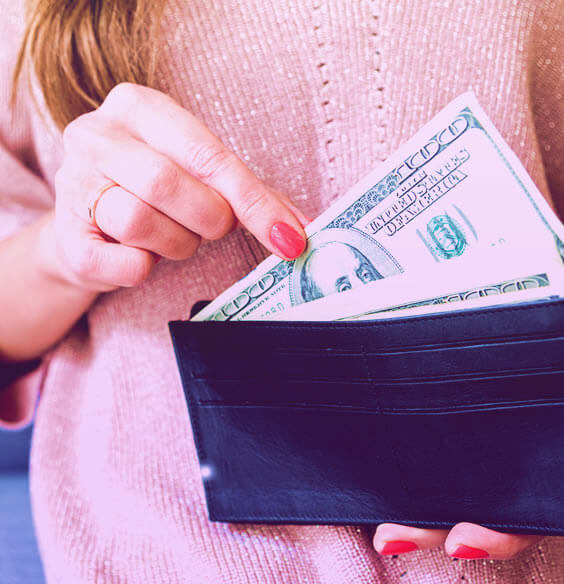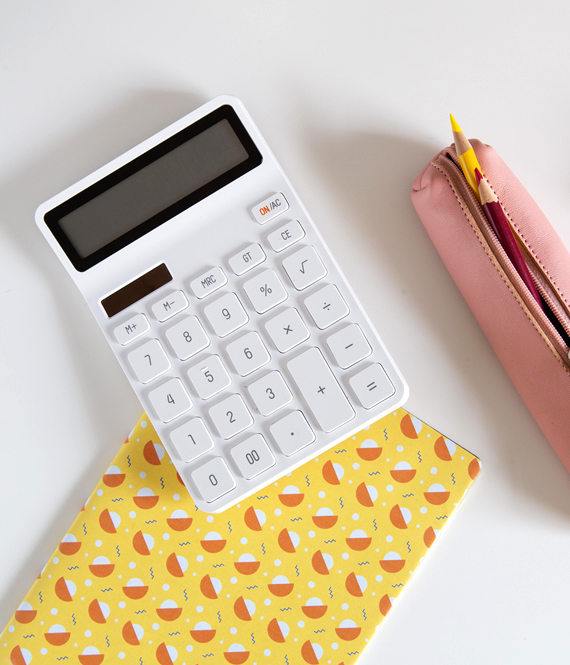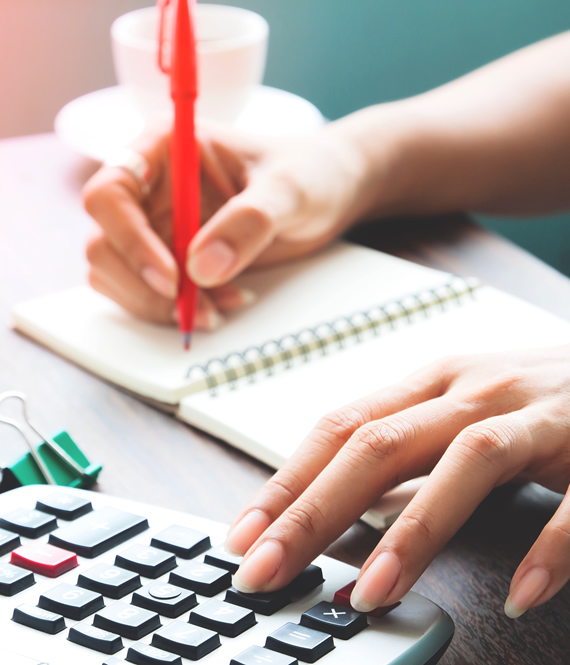
Get Rid Of Debt: The Simplified Debt Repayment Plan For Those Who Feel Clueless
We recommend helpful products in our articles. Read our full disclosure here. The content on this website is not intended to be a substitute for professional advice, diagnosis, or treatment.

Debt is a serious problem for many people…
Whether it’s credit cards, student, bank, or car loans, debts can quickly spiral out of control.
Even worse, because of interest, you could end up paying a lot more than you originally loaned and it is why you need to pay off your debts as quickly as possible.
I’ve been in big debt myself and can admit that yes, it can seem overwhelming to get started.
Sometimes you might feel so deep in debt that it may seem impossible to get out…
But the fact is that you have to do it and the longer you wait, the more you’ll end up having to pay so the best solution is to take a deep breath, make a plan and start building your way to freedom.
This guide will help you get started!
Follow these tips to get a strategy for quickly and easily paying off your debts, and getting back to normal as soon as possible.
Let’s Get Rid Of Debt!
The Simplified Debt Repayment Plan
1. List your debts
Start by listing all of your debts.
Include everything from credit cards to bills and loans, and also how much you have to pay.
Plus – the minimum payment amount and the interest rate.
Add any important information to this list like the terms, contacts, name of the lender and other information you think you’ll need.
2. Rank your debts
Rank your debts in order of importance and in the order that you need to pay them off.
Starting from the smallest to the largest debts will make things easier.
On the other hand, starting from the biggest to the smallest will help save you money.
These two techniques are known as the snowball and avalanche methods.
- With the avalanche method, you pay the biggest debt with the highest interest rate.
The benefit of this method is that you end up paying less interest.
The downside is that it can take a longer time.
- With the snowball method, you start with the smallest debt first.
This will give you the satisfaction of getting rid of those smaller debts, and motivate you to take on the bigger ones.
The downside is that you’ll end up paying more interest over time.
The order in which you take care of your debts will depend on your situation and personal preferences.
I personally felt that the snowball method feels a little easier mentally.
3. Find money to pay them
You then need to turn on your creativity and figure out where you’re going to get the money to pay your debts.
This might involve cutting back on your daily spending, selling the items you no longer need or, if you can, getting a second job or more shifts.
You could also try looking for a job that pays better.
At this point, it’s a perfect time to draw up a monthly budget.
This will help keep your spending in check so you can stay on track and even find money to pay off debts.
A good finance tracker can help you do that easily.
Here’s the one I use myself: free printable finance tracker.
It’s a very versatile printable that you can use to track all your finances in and out, for a full year long.
It also includes a helpful page to list your debt payments which is also a plus for a person who wants to repay debt.
Give it a look!
4. Focus on one debt at a time
Pay off one debt at a time and use all of your extra money to do this.
In the meantime, pay the minimum interest on your other debts to keep them from growing.
By focusing on one debt you will be able to pay it off faster and will spend less on interest.
It’s also easier than trying to handle several debts at once.
5. Move onto the next debt
Once you’ve paid off the first debt, move onto the next.
Carry on doing this until you’ve dealt with all of them.
And remember – if at any time you feel like hiding from your creditors (I know, they just LOVE to send those scary letters…), the best thing you can do is actually communicating with them.
The mutual interest in this situation is that you pay the debt, even if it takes longer.
So never hide and communicate, even if you’re late on your payment.
6. Order a credit report
Debts affect your credit score… This is why it’s important that you monitor your credit when paying them off.
To do this, order a credit report.
Getting a credit report is very useful because it lets you see how your credit score is improving and you can also check if there are any inaccuracies.
7. Build up your savings
Once all your debts are paid off, it is strongly recommended to start building up a savings account.
This will serve as an emergency fund and it can stop you from ending up back in debt in the future.
It’s important that you learn from this experience and become more responsible.
In fact, you might even want to consider canceling your credit cards.
– – –
Sometimes it can seem like paying off your debt will take forever…
Unfortunately, this isn’t something we can get around.
It’s important to realize that this is not only a financial, but also – an emotional journey.
Keep working on staying positive + motivated and always remind yourself that the sooner you start, the sooner you’ll finish.
Every step counts and even though it might feel like a very long journey, it’s a journey to freedom.
"We love to research problems, examine studies, analyze solutions, and share with you ideas that make life healthier. You can learn about us and our editorial standards here. Have suggestions or feedback to share? Send us a message!."













Leave a Comment